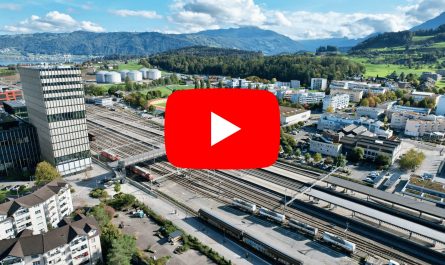Achieving good visibility in Google’s search results is essential for companies and website operators. A higher ranking not only drives more traffic to your site but also increases your chances of attracting potential customers and achieving your business goals. For instance, targeting keywords such as “durchschnittslohn Schweiz” can help your website rank higher for relevant searches, connecting you with users interested in salary data and employment trends. But how can you climb the seemingly endless list of search results?
The Importance of Google Ranking Optimization
Improving your Google ranking is a multi-faceted process that combines both technical precision and creative execution. By implementing the right strategies, you can significantly increase your visibility and achieve long-term success in online marketing.
Key Techniques for a Better Google Ranking
- Keyword Optimization: Selecting and targeting the right keywords that align with your audience’s search intent.
- Page Loading Speed: Enhancing your website’s performance for faster loading times, which Google values highly.
- High-Quality Content: Producing valuable, engaging, and informative content that keeps visitors on your site.
By focusing on these and other crucial factors, you can position yourself strongly in the digital competition and ensure your website remains relevant in a constantly evolving online landscape.
Key Factors to Consider for a Better Google Ranking
To rank at the top of Google’s search results, multiple factors must work together seamlessly. Here are two critical elements to focus on:
-
Choose the Right Keywords
Selecting the optimal search terms is one of the most important aspects of SEO, but it can also be a major challenge. When determining your keywords, consider:
- What are your customers searching for?
- How often are these terms searched?
- What is the user’s search intent?
Helpful Tips for Keyword Strategy
- If your business is regional, include location-specific keywords, such as “Service X in [City].”
- If you aim to target multiple keywords, leverage SEO optimization tools to manage and analyze your strategy effectively.
-
Internal Links
Internal linking is another significant factor that impacts your Google ranking. Search engines evaluate the importance of your pages based on the number of internal links pointing to them.
- Important pages: Should have many internal links to signal their relevance.
- Less critical pages: Typically have fewer internal links.
By structuring your internal linking thoughtfully, you can guide search engines and users to your most valuable content, improving both visibility and usability. For example, internal links to content about “people management” can highlight key strategies for managing teams effectively, drawing attention to your expertise in this area.
Avoid Mistakes: Key to a Better Google Ranking
Google prioritizes websites that are clean, fast, and informative, giving them an edge in search rankings. To achieve this, it’s essential to keep your website error-free and continually optimize it. Various tools are available to analyze your site and identify areas for improvement.
Crucial Aspects to Focus On
- Meta Description and Meta Title
Ensure these are well-crafted, relevant, and optimized with targeted keywords.
- Website Speed (Core Web Vitals)
A fast-loading website is vital for user satisfaction and Google rankings.
- Responsive Web Design
Guarantee your site displays properly on mobile devices and adapts to various screen sizes.
- URL Structure
Use clear, concise, and keyword-friendly URLs to enhance usability and SEO.
- SSL Encryption
Secure your website with SSL certificates to build trust with users and comply with Google’s preferences for secure sites.
By addressing these factors, you can eliminate errors, enhance user experience, and improve your chances of climbing higher in Google’s rankings.
Stay Active and Maintain Performance: Keys to SEO Success
Stay Active with Fresh Content
Both website visitors and Google value up-to-date information. Regularly publishing fresh, relevant content is essential for keeping your audience engaged and maintaining strong search engine rankings.
- Why it Matters: Outdated content can lead to higher bounce rates, as visitors may leave your site quickly if the information is no longer relevant.
- What to Do: Publish new content at regular intervals and link it to existing pages. This demonstrates to both search engines and users that you remain an active expert in your field.
The Importance of Performance
Website performance plays a crucial role in user satisfaction and search engine rankings. Visitors expect fast-loading websites, and search engines prioritize pages that meet this demand.
- Key Factors:
- Hosting Speed: Choose a reliable, fast host.
- Optimized Images: Use fewer images or adjust their size for faster loading.
- Pro Tips for Better Performance:
- Resize Images: Ensure image dimensions are appropriate for web use.
- Enable Browser Caching: Save static resources for faster repeat visits.
- Remove Render-Blocking Resources: Eliminate unnecessary scripts and styles that delay page rendering.
By staying active and prioritizing performance, you can ensure your website remains both user- and search engine-friendly, setting the foundation for long-term success.
Content is King: Why Content Matters for SEO
Most website operators are familiar with the saying “content is king,” and it remains true. Only websites that provide relevant and high-quality content will be found on Google.
How to Create Great Content
- Analyze the Competition: Study competitors’ websites to understand what works in your niche.
- Conduct Keyword Research: Use professional tools to find the right keywords that match your audience’s search intent.
- Focus on Value: Write search engine-optimized texts that offer real value to readers.
By consistently creating engaging and optimized content, you can gradually improve your Google ranking and attract more visitors.
Image Optimization for Better SEO
Images are essential for websites and play a critical role in search engine optimization (SEO). Properly optimized images enhance both user experience and your website’s performance in search rankings.
Simple Tips for Image Optimization
- Change File Names: Rename your image files with concise, descriptive names that include relevant keywords.
- Use Alt Text: Add a short, keyword-rich description to the alt text of each image. This not only improves SEO but also ensures accessibility for visually impaired users.
By paying attention to content quality and image optimization, you can boost your website’s visibility and provide a richer experience for your audience.
Structured Content: Tables, Lists, and More
Well-structured content is key to keeping readers engaged and improving usability. Tables, bullet points, and lists are excellent tools for breaking up dense text and making information more digestible.
Key Factors for Well-Structured Content
- Publish only high-quality content.
- Avoid creating worthless subpages.
- Include internal links to connect related content.
- Regularly optimize images for performance and relevance.
- Declutter your website at regular intervals to maintain a clean structure.
Can an SEO Agency Improve My Ranking?
If you’re not confident in your SEO knowledge, but want to succeed with your website, an SEO agency can be a valuable partner.
How an SEO Agency Can Help
- Website Development: Support in creating a strong SEO foundation.
- Ongoing Optimization: Enhance your website’s performance with proven strategies.
- Professional Tools: Agencies have access to specialized tools that can identify opportunities and streamline optimization processes.
By working with an SEO agency, you not only benefit from their expertise but also gain insights into website design and content optimization. This partnership can help you achieve sustainable success in the competitive digital landscape.



